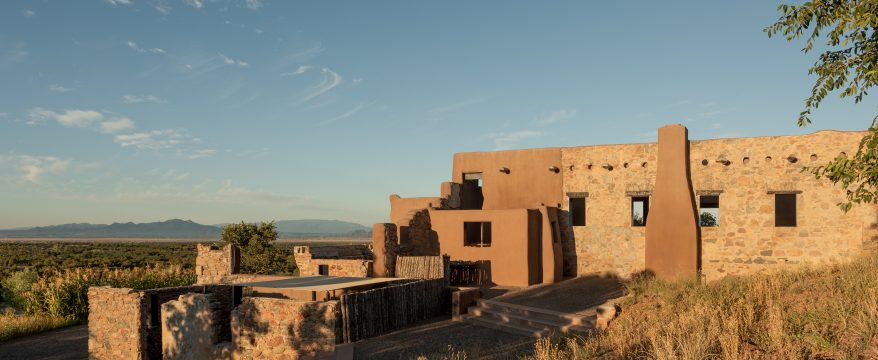When the World Goes in Slow-Mo
In the throes of COVID-19, our governor has declared a stay-at-home order. But in Santa Fe County, the population is low-density, and physical distancing while getting outside is not a problem. I manage to get outside daily but wanted to do some community service without risking contact with others. So, it occurred to me that picking up trash would work within the current constraints.
Picking up trash requires humility. It can be uncomfortable because many in our society view such activity as reserved for the underclass. Collecting garbage is for other people, they might think.
Thank goodness, not everybody thinks that way. As our managing director, Sarah Spearman, told me, bestselling author and humorist David Sedaris is a “litter-picker” where he lives in West Sussex County, England. He wrote in the New Yorker a few years ago, “You can tell where my territory ends, and the rest of England begins. It’s like going from the rose arbor in Sissinghurst to Fukushima after the tsunami.”
The Academy has a storied history of cleaning the land. Here is how our founder, Aaron Stern, described this land when he and his staff arrived:
When the Academy purchased Seton Castle in the spring of 2003, it came with the surrounding 86 acres of land (the last remaining of what had been Seton’s 2500 acres). We immediately began the process of restoring the castle and renewing the land.
The castle itself was in a state of near collapse. The land was littered with garbage. We went to work on many fronts simultaneously. With the help of volunteers from Seton Village and elsewhere in the area, we immediately began to archive and remove the important contents of the building, much of it damaged and mold-ridden, and we placed it in secure storage to protect it from further damage.
We began picking up and removing what became some 300,000+ pounds of garbage from the land, with the help of many volunteers.
Well, with that inspiration and in the Academy tradition, I armed myself with gloves and two trash bags and set out to clean up the edges of Seton Village Road, the same street where the Academy is located. With the goal of cleaning the full mile of road, I had already filled my bags in a half-mile by gathering waste from just one side of the road: chucked beer cans, bottles, boxes, a broken mirror, a pipe and more. And this is a scenic road that winds along a lovely piñon, juniper, Gamble’s oak and chamisa-lined arroyo. At 25 miles per hour, that trash was invisible to most. As someone who often walks that route, it was disconcerting.
But what was most surprising was the way I was seen by passing neighbors. I didn’t feel at all like someone cast in a lower station of society. People waved from their cars, and a bicyclist shouted, “All right! Making things beautiful again!” As I was lugging my bags back, a neighbor with a light pickup stopped. I learned I wasn’t alone. This neighbor told me she and others were also doing clean-up patrols. She had a squirrel in a Havahart® cage and was en route to release it in the open space where there’s water. She offered to cart me and the garbage to a nearby dumpster in the back of her pick-up with the squirrel.
The squirrel jumped around in the cage as we winded along the curvy road. I’m sure we weren’t six feet apart, but the decree said nothing about staying away from squirrels. As the squirrel probably sees it, it’s the humans who are mostly in cages now.
This slow-mo time of stay-at-home declarations makes me reflect on what life must have been like about a hundred years ago, when most locomotion was human or horse-powered and people had to be more resourceful to get by. I expect a lot of social innovation will come out of this slowing down, and, I hope, a lot of reflection on harmless, pragmatic ways we can improve our quality of life. Simple acts of kindness are popping up all around, and, despite our physical distance from one another, people are demonstrating humanity’s one heart now more than ever.


